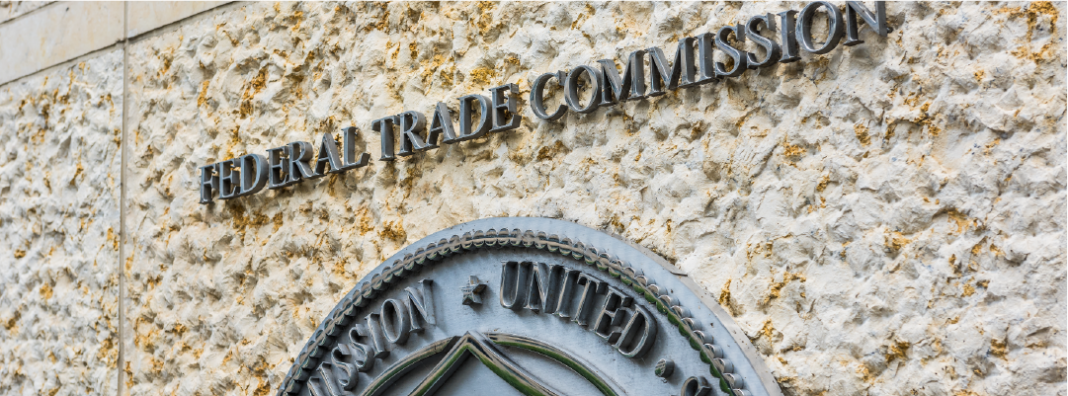
Neil Chilson, Senior Research Fellow for the Center of Growth and Opportunity at Utah State University, testified before the U.S. Federal Trade Commission on May 4, 2023.
The Federal Trade Commission held an informal hearing on its proposed rule prohibiting government and business impersonation. In his oral submission at the hearing (full text below), Chilson highlights the need for a targeted and effective rule to address fraud,
“As the record clearly shows, imposter fraud is a too common occurrence and costs consumers and businesses millions of dollars a year. We need a good rule here, one that effectively targets fraud with minimal impact on lawful behavior and that is legally sustainable.”
Testimony before the Federal Trade Committee
May 4, 2023
Good afternoon, Your Honor. I am Neil Chilson, a senior research fellow at the Center For Growth and Opportunity at Utah State. Researching how key institutions ignite economic growth and increase opportunity for all.
From 2013 to 2019, I was an employee of the FTC, first as an attorney-advisor to Acting Chair, Maureen Ohlhausen, and then as the acting chief technologist for the Agency. I do not represent any parties in this matter and these views are my own. My interest in this proceeding is as a consumer with a stake in efficient and effective fraud enforcement and as a former FTC employee proud of the antifraud work that I contributed to.
As the record clearly shows, imposter fraud is a too common occurrence and costs consumers and businesses millions of dollars a year. We need a good rule here, one that effectively targets fraud with minimal impact on lawful behavior and that is legally sustainable. To that end, two points.
First, the rule, as written, unlike every other Section 18 rule, is broader than Section 5 and ought to be narrowed. Second, the FTC case law is indefinite on the contours of means and instrumentalities. The record shows that this provision is already being misunderstood. The FTC should correct this misunderstanding.
Together these issues mean that this proceeding may have failed to put potentially affected parties on notice, leaving a factual gap in the record and in the Agency’s regulatory impact analysis. First, the text of the rule is overly broad. This proceeding is targeted at addressing impersonation fraud and scams in commerce acts that clearly violate Section 5. Yet, as the rule as written declares and as Mr. MacLeod mentioned earlier, it declares unlawful activities that would not violate Section 5’s prohibition on deceptive acts or practices. The rule does not reference unfairness or deception or note that prohibited activities must be in commerce. On its face, the draft rule would prohibit a comedian from impersonating Elon Musk, John Ratzenberger from portraying a mailman or a kid from dressing up as Abraham Lincoln. With the means and instrumentalities provision, it would appear to be unlawful to even provide an Abraham Lincoln costume to said child. Of course, courts would not permit such an overbroad application of the rule under Section 5, and it seems unlikely that this FTC would spend its resources pursuing cases that the courts would reject out of hand, but rules should be written assuming that some future leadership might seek to abuse them, perhaps to chill unflattering portrayals of national politicians.
The NCRM states that Section 5 hems in the broad language of the rule, but that gets the purpose of FTC’s rulemaking backwards. The text of the rule should clearly delimit a subset of practices prohibited by Section 5. Not the other way around. Indeed, every one of the six past rules created through Section 18 has been written as a subset of Section 5. Every one of them specifies in the text that the prohibited conduct is in commerce. Each one also describes the prohibited conduct that these are an unfair act or practice or a deceptive act or practice or both. For example, the Used Motor Vehicle Trade Regulation Rule states it is a deceptive act or practice for any used vehicle dealer, when that dealer sells or offers for sale, a used vehicle in or affecting commerce as commerce is defined in the Federal Trade Commission Act, to misrepresent the mechanical condition of the used vehicle, et cetera. Adding similar language to the draft impersonation rule would be simple and it would still achieve the goals of the proceeding, and it would be a better match — it would better match the text of the rule to the NPRM’s description of the rule scope, helping to cure some of the notice concerns.
On the second matter of means and instrumentalities provision, I echo the value of having a knowledge requirement. As former BCP director, Jessica Rich, had noted, there has been a debate over the years about the contours of means and instrumentalities, with some Commissioners saying that others are using it as a substitute for aiding and abetting a form of secondary liability not within Section 5 or the FTC’s authority. Indeed, some parties in this record have made this exact mistake. The FTC must clearly articulate the proper scope of the rule, potentially by putting the standard for means and instrumentalities in the rule itself. To the extent the standard for applying means and instrumentalities liability under Section 5 is itself unclear, it is not a good candidate for rulemaking.
Thank you very much, Your Honor. This concludes my statement.
View the transcript of the hearing here.

